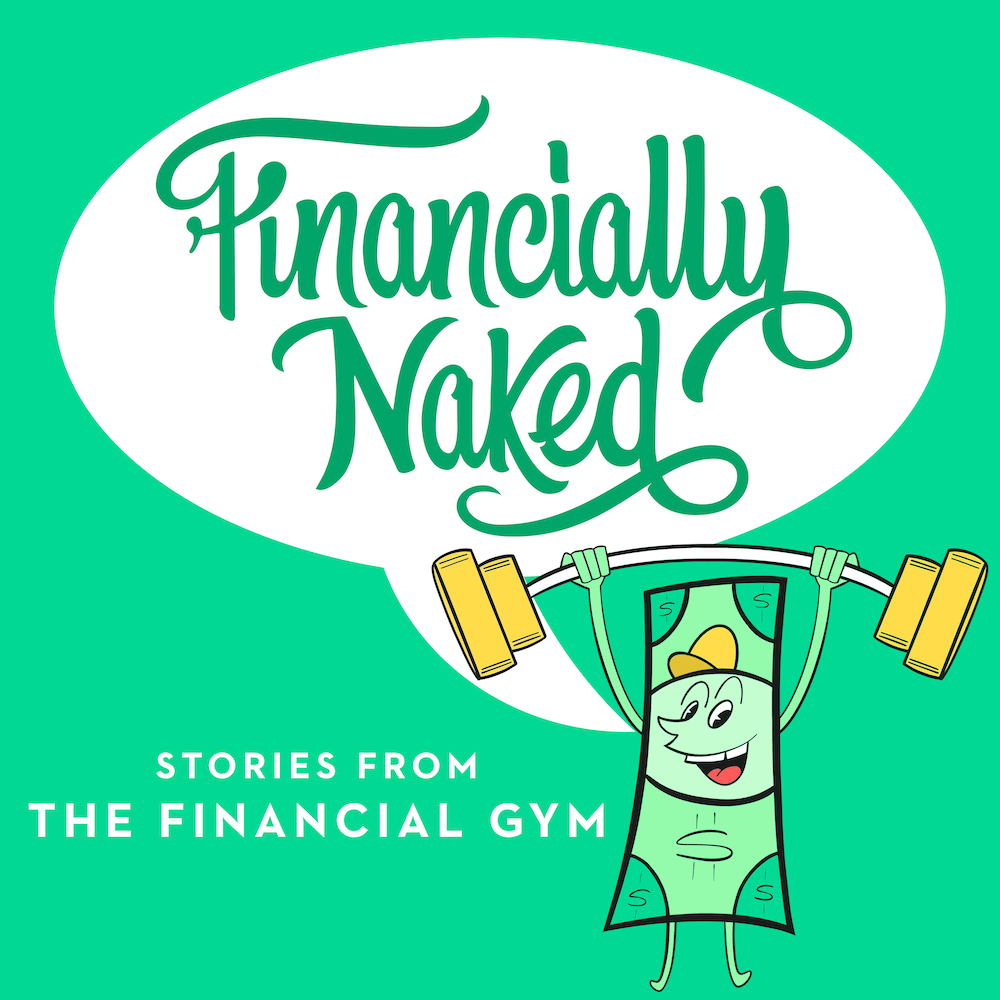Going Back to School Paying as Little as Possible with Catherine Lavelle
FinGym Client Catherine Lavelle
On this episode of Financially Naked: Stories from The Financial Gym, our host is Emily Egan, PR and Strategic Projects Manager. She is joined by FinGym Client Catherine Lavelle to talk about going back to school later in life and how to get someone else to pay for it.
Podcast Notes
Catherine has been a client of The Gym for about a year and a half and her trainer is Crystal.
Catherine works in admissions at a college in New York. Recently, she started a company on the side to help people go back to school.
In her work in admissions, she came across a lot of people who were looking to pick up where they left off five, ten, or fifteen years ago, when they had to quit due to life.
Catherine has heard stories ranging from leaving school to have a baby, or they were hit by a truck, or they had other opportunities.
She was working a lot with transfer students and realized this was a niche where she could start a business. She is committed to helping people finish a degree. Part of a degree isn’t that valuable and all of a degree is valuable in total. A lot of people find growth and development in their career, but when they want to move up, some jobs require them to have a bachelors degree.
One reason Catherine is at The Financial Gym is for help paying off her student loans. Her education was very valuable, but she wants to help people not take out as much in loans and finish their degrees.
The first thing Catherine recommends is to define your goals and figure out what is most important to you. Is it to finish in the shortest amount of time possible? Or is it to get a particular degree or to reach a particular goal?
A good place to start is a weigh in to see where you are. Did you leave school with an associate’s degree? Did you leave because you failed out or were dismissed?
One of the secrets most people don’t know is that your school wants you to finish. When you finish your degree, their completion rates go up and it makes them look better.
If you leaving school was not on a positive note, you can make an appeal. How many credits do you have? What were your grades? Do you owe the school money? If money is a roadblock, talk to someone in admissions.
Catherine tries to tease out the specifics to see where each client is and create a roadmap to move forward.
Sometimes private schools offer discounts to returning students. Going back to the college you left is a great place to start. You may qualify for a reverse transfer and take classes at another school and apply them to a previous school toward a degree.
There are a lot of ways to pay for school. Some companies will pay for employees to go back to school, so check with your HR department to see if your employer offers this benefit.
Fill out the Federal Application for Student Aid (FAFSA). This will trigger you to a lot of different kinds money. The FAFSA will qualify you for federal grants and loans.
After you find out what you qualify for in grants from FAFSA, see what you qualify for in general. Look anywhere around you.
There are about 11 different states that have free community colleges.
One of Catherine’s credit unions gives 10, $1,000 scholarships every year, just for belonging to the credit union. Once you start paying attention and know where you want to go and how much it is going to cost, you will start to see these scholarships. There are a lot of scholarships that go unclaimed every year.
Catherine works with a lot of clients that are going back to school to finish an undergraduate degree.
When you start getting into more specific degrees, like nursing or law school, or if you want to go to an Ivy League or brand name school, get into the school first and then work with the school’s financial aid system.
Sometimes you can go to one school and bargain with them based on what another school is offering you. Take your best offer and leverage it. There is a lot of room for negotiation with private schools. Apply to a few different schools and see what they offer you. Most private colleges will charge about $95 to $100 to apply, but most will waive the fee if you ask them.
After qualifying for grants and scholarships, you may need to take out loans. Make sure you take out the least amount of money you need each semester or year. If you don’t need the money, send it back, especially for private loans.
With any loan, you are allowed to work. Some loans are tied to work-study programs. Read everything and every flyer for jobs.
In college, Catherine lived for free in Cambridge, Massachusetts, for three semesters, by living with a family and watching their kids. Catherine was also in a graduate assistantship and when that stopped, the school found her housing on campus in exchange for her credits.
When a school has admitted you, they want to help you find a way to pay for it. Your job is to figure out how to not take out private loans.
Most students don’t know the possibilities until they start looking. The paperwork is sometimes the biggest hurdle. Find someone to help you navigate the system.
Be hopeful and remember that one size doesn’t fit all, when it comes to going back to school.
Resources Mentioned


